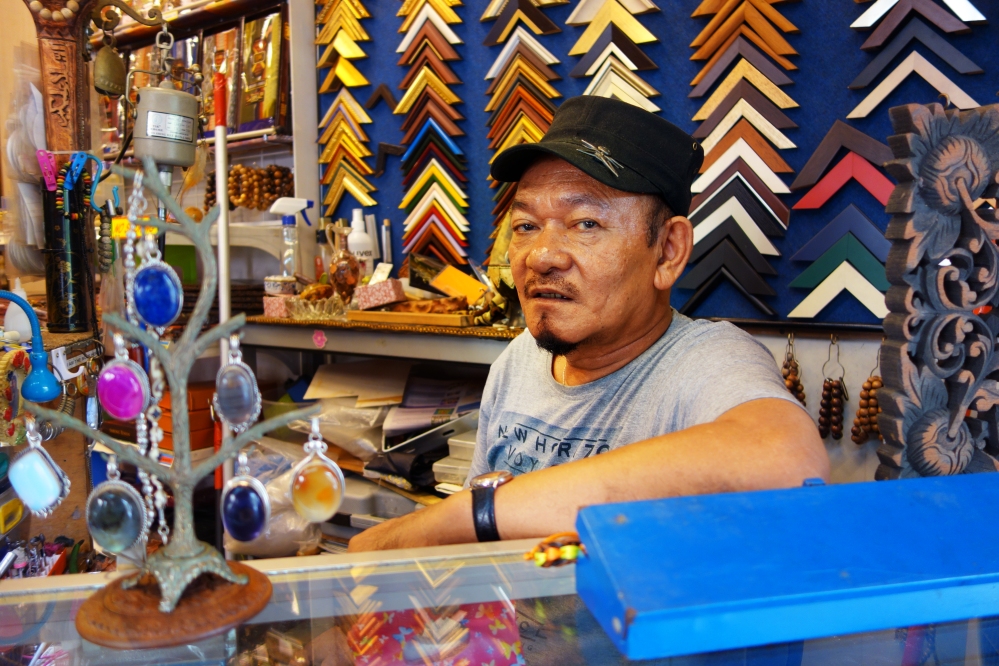
Turning a hobby into a retirement business
“This is just a way to pass my old age.”
Salim Buang is in his 60s and turned his hobby into a small business after getting retrenched during the 2008 economic crisis.
His shop feels like a treasure trove of wooden crafts, jewellery, and collectable items that he has individually and carefully selected over the years.
Salim shares his strategy for growing his business and sales.
1. Start very small to test the market
Salim started his business with a folding table that he placed in the corridor outside a row of HDB (brick-and-mortar) shops. This way, he got to know the regular stream of passerbys in the community.
“I rented a table in the corridor: $30 a day for 3 months, setting stones in rings. People around here got to know me. So, after that, I looked around the area, and found a shop to rent. After 4 years, I moved here [to a bigger shop]. There is more place for the things.”
In the beginning, he kept his costs to a minimum to test the market.
2. Expand the business gradually
In each phase, he waited patiently till he had accumulated enough capital, established his customer channels, and gained confidence in predicting demand before investing in further expansion.
While his business remains “micro”—he runs it all by himself—he took the business through incremental phases of growth without any external capital injections from formal institutions such as banks and government agencies.
His approach: slowly investing his profits back into himself.
This model has a downside: it limits the speed of growth. However, it keeps the business at a manageable, sustainable size to handle on his own.
3. Create a mix of revenue streams
Apart from precious antiques that sell once in a way, Salim also sells items with fast sales cycles such as arm socks for truck drivers, simple broaches for women, and pyjamas for children. These everyday necessities balance his everyday cash flow.
He constantly revises his inventory to ensure a trickle of revenue from low-value items that he places in prominent places, while relying on better times in people’s paycheck to sell his expensive collector items.
4. Be prepared for unexpected challenges
Salim describes the most devastating episode of his business: “One night, thieves broke into my shop and stole all my valuable things. I had spent so long collecting each and every item—piece by piece!”
“Luckily, I had written down the serial numbers of the old currency notes, so I immediately called my friends in the same trade and told them about it— that’s how the thieves got caught: they were trying to resell the stolen goods to these other shops!
“The police said these guys were linked to a drug syndicate, and I think they’re still in jail.”
Shopkeeper Stories is a photographic documentary of small business owners with their trades around the world, sharing their views on business and life. You can catch all the posts on Facebook and Instagram @ShopkeeperStories. Enjoy!